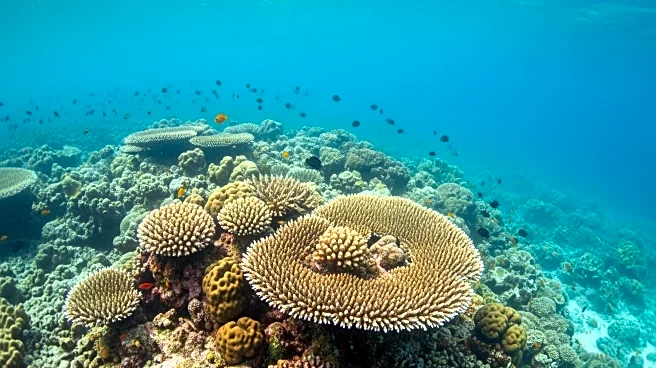What's Happening?
A new study published in Science Advances reveals that corals have developed an unexpected ability to regulate the mechanisms they use to build and maintain their skeletons, even in increasingly acidic
ocean conditions. This discovery, made by researchers at the University of Colorado Boulder, challenges previous assumptions about the vulnerability of corals to ocean acidification, a consequence of rising atmospheric carbon dioxide levels. The study highlights the resilience of corals, which are crucial to marine ecosystems but have been under threat due to environmental changes.
Why It's Important?
The ability of corals to adapt to ocean acidification offers a glimmer of hope for the future of coral reefs, which are vital for marine biodiversity and coastal protection. This resilience could help mitigate some of the damage caused by climate change, although it does not address other threats such as rising sea temperatures and habitat destruction. Understanding these adaptive mechanisms is crucial for developing effective conservation strategies and ensuring the survival of coral reefs, which support a vast array of marine life and provide significant ecological and economic benefits.
What's Next?
Further research is needed to explore the full extent of corals' adaptive capabilities and how they might respond to other climate-related changes. Scientists aim to investigate the potential for different coral species to adapt to various environmental stresses, which could inform conservation efforts. Additionally, understanding the biological processes that enable corals to maintain their skeletons in acidic conditions could lead to new approaches in marine conservation and climate change mitigation.
Beyond the Headlines
The study of coral resilience not only provides insights into marine biology but also highlights the broader implications of climate change on ecosystems. As ocean acidification continues to threaten marine life, the ability of corals to adapt could serve as a model for other species facing similar challenges. This research underscores the importance of protecting marine habitats and addressing the root causes of climate change to preserve biodiversity and ecosystem services.








